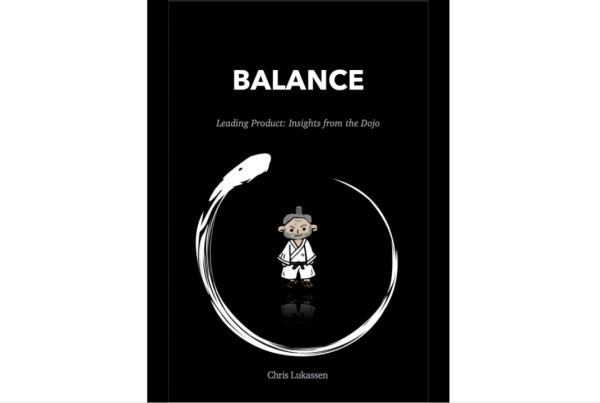Doing the right thing is not as easy as just saying it. It can often require real courage to do what is right, and humans are notoriously fallible in this front. But another, equally daunting obstacle stands in the way of what is good and just – one that we have likely been struggling with for as long as our species has had a notion of right and wrong: How exactly, pray tell, does one determine what is the right thing to do in a given situation?
This question was recently brought into sharp focus for me during a conversation with a colleague at work. We were debating, in private, an issue that would have a direct impact on customers. I was arguing in favour of a given course of action, while my colleague was arguing in favour of a different one. Then my colleague made the following comment:
“But Bernard, we can’t do that! We must do what’s right!”
I was completely dumbfounded. You see, I pride myself on my integrity, so having a colleague suggest that I was proposing an unjust course of action really threw me for a loop. I paused for a second or two and eventually, replied something like this:
“Well, respectfully, the solution that you’re proposing actually offends my sense of fairness. Believe it or not, I’m also trying hard to do what’s right, here.”
I spend a lot of time thinking about morality and ethics. I have always been fascinated by the topic and over the decades, have tried to familiarize myself with ethical systems from many of the greatest thinkers of the Western tradition, from Plato and Aristotle to Seneca and Machiavelli, Locke and Montesquieu, Kant and Mill, Rawls and Weber, to name only those. I also completed studies in law, including a masters in constitutional law that forced me, decades ago, to confront many important questions of right and wrong.
Should you treat all people the same, or according to their own unique circumstances? Should judgement about someone’s merit be based on outcomes or intent? Should the greater good take precedence over the rights of individuals? Is there even such a thing as an objective “right”, or is it all relative and even, perhaps, entirely subjective?
Those, like others of the same ilk, are meaty questions and if you feel that the answers are clear and self-evident, I would submit respectfully that you may want to expose yourself to a broader set of ideas before you reach any hasty conclusions. Self-doubt and humility, when it comes to questions of right and wrong, is often a more fruitful starting point than self-righteous confidence.
My own ideas are still evolving and it is entirely possible that a few decades from now, looking back on this period of my life, I will be as shocked by the naive simplicity of my views as when I look back on the beliefs that I held firmly as a young adult. Here is, nevertheless, where my own reflection has led me so far:
I like to believe that there are, in fact, some things that are objectively right and others that are objectively wrong. Discerning right from wrong, however, is exceedingly difficult and we should check ourselves any time we start feeling too secure in our views.
We, the moral agents, are all the result of our personal experiences, our individual and collective life journeys. Ideas of right and wrong, for most people, are based not on deep reflection but rather on self-interest at the level of the individual or the small group, as perceived in the moment. We are indeed endowed with empathy, but it is extremely difficult for us to distance ourselves from our own circumstances, which create intrinsic biases in the way that we view the world. Those biases are constantly being reinforced through contact with our community (or communities) of reference and the more isolated we are, the narrower our views will tend to be.
There is no easily identifiable and infallible standard to weigh one person’s views or biases against another person’s, or a group’s against another group’s. Some may think that there is indeed such an absolute answer to any given problem but as all people are biased, fallible and conflicted, nothing could be more dangerous, whatever the context, than submitting to the final and absolute dictates of “One Who Knows”. In the same way, all groups and communities are also biased, fallible and conflicted so deferring blindly to the views of one group of individuals over another is equally dangerous.
There is, in fact, nothing more dangerous in my view than an individual who harbours no doubts as to what is right or wrong, or collections of individuals who are, similarly, convinced beyond a doubt about the righteousness of their views.
What is right, I believe, can usually be found in the consensus that emerges from a difficult struggle of ideas over extended periods of time – often decades or even centuries. Justice on a broader scale is the result of groups and individuals nudging each other to and fro in a constant dance, consensus emerging here and there from time to time, adjusting in real time in reaction to ambient circumstances that would throw the consensus off-kilter, always struggling for balance but always on the verge of chaos.
Ideas and ideals about who we are and who we want to be act as catalysts, constantly creating new centers of attraction within the broader system. The attraction and repulsion of such ideas, combined with their relative appeal in the face of evolving realities, is always reshaping views and forcing the system to find a new balance. The virtuous consensus is constantly being pulled at and stretched, always at risk of fragmenting under its own weight. It becomes more unstable as it gets broader, the pull that it exerts making it gradually too broad to sustain itself in the face of narrower and more “compact” interests.
Maintaining this precarious balance requires flexibility, and consensus shatters more easily in the face of rigidity. The more open and flexible the system – the more open and vigorous the conversation – the easiest it is for consensus to adjust itself in response to evolving conditions and in reaction to new ideas. Once balance has been broken, irreconcilable views of right and wrong will take over until a new consensus can emerge.
Perhaps there are absolute rights and wrongs, immutable principles that apply whatever the circumstances, but I do not have the pretension to have discovered them. Nor am I willing to defer on such matters to the supposedly infallible rulings of One Who Knows. As fallible moral agents, the best that we can probably aspire to are approximations of what is right and just and we can only achieve those approximations, I have come to believe, through the messy push and pull of imperfect individuals and communities struggling to bring about a state of equilibrium from the chaos of conflicting views and interests.
Justice is the result of an ongoing process of co-creation within a community of reference (if we are ambitious enough, perhaps one day the entire human species). When it comes to questions of right and wrong, we are simply better off when we listen to each other.



